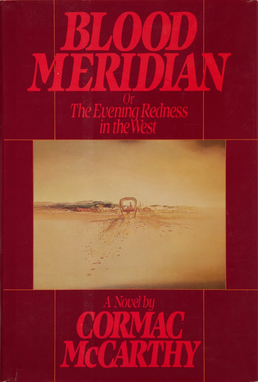Part 11
byPart 11 of Blood Meridian takes a deeper look at the violent and chaotic world that Glanton and his mercenary group inhabit, beginning with their journey through the rugged, unforgiving mountains. As they ride through high pine forests and narrow valleys, they are constantly surrounded by the vastness of the wilderness, and the landscape is an ever-present reminder of the dangers they face. The serenity of the wilderness is interrupted when a bear attacks, leading to chaos and a desperate struggle. Glanton attempts to shoot the bear, but it manages to grab one of the Delawares, dragging him into the wilderness. This act propels the Delawares into a relentless pursuit of the bear, which lasts for three days. However, despite their efforts to follow the blood trail, the bear escapes into the vast wilderness, leaving the men with nothing but the stark, unforgiving landscape as a reminder of their failure.
The narrative continues to focus on the struggle of the men, as their journey is deeply entwined with survival in a harsh and uncaring environment. The wilderness becomes a symbol of their lives, a constant force that neither yields nor provides solace. The group’s inability to find the lost Delaware highlights the theme of hopelessness and futility that pervades their existence. They are men defined by violence and hardship, trapped in a never-ending cycle of survival that only leads to more violence. When they finally return, defeated and exhausted, the desolation of the wilderness mirrors the emptiness they feel inside. Their journey is not just physical but emotional, as they are perpetually haunted by the violence they have committed and the land they are condemned to wander.
As the group continues their journey, they encounter different terrains that further illustrate the hostile nature of the world they occupy. The varied landscapes, from dwarf oaks to vast escarpments overlooking the San Agustin plains, serve as constant reminders of the dangers that lie ahead. They come across the ruins of an ancient culture, where the judge takes a moment to examine artifacts left behind by those who had once inhabited the land. His actions, cold and methodical, reveal a stark contrast to the violence that has come to define his life. The artifacts serve as a reminder of the fleeting nature of civilizations, and the judge’s obsession with these remnants suggests a deep curiosity about the past and its impact on the present. The juxtaposition of the ruins and the judge’s dispassionate examination highlights the overarching theme of time and mortality, reinforcing the idea that nothing—neither life nor culture—lasts forever.
The conversations between the judge and the other men further deepen the philosophical undertones of the chapter. The judge speaks of a man who had once pretended to be an Indian, only to commit murder in the end, illustrating the complex and fragile nature of identity. This story sparks discussions among the group about the intricacies of morality, guilt, and the actions that define a man’s character. The judge’s views on identity suggest that, in a world dominated by violence, there is little room for true individuality or morality. He paints a bleak picture of humanity, where actions and identities are shaped by the brutal realities of survival. The chapter explores the generational burdens of violence, guilt, and sin, emphasizing that these forces cannot be easily escaped. The violence that the men experience is not only external but internal, deeply embedded in their psyche and their actions. This sense of inevitability, that violence is a part of their identity and existence, looms large throughout the chapter.
Ultimately, Part 11 of Blood Meridian weaves together a tapestry of violence, survival, and existential questioning. The group’s journey through the wilderness is not just a physical one, but a journey into the heart of human nature and the brutal realities that define it. The land they traverse becomes a mirror for their souls, reflecting the deep struggles they face both externally and internally. The harshness of the landscape and the violence that permeates every aspect of their existence reflect the constant tension between survival and morality. The chapter also raises questions about the nature of existence and identity, suggesting that the line between right and wrong is blurred in a world that offers no clear answers. Through these reflections, Blood Meridian examines the human condition, showing how violence and survival are inseparable, and how the past continually shapes the present. The narrative suggests that, in a world where the rules of morality are constantly challenged, survival becomes the only true goal, and the legacy of violence is passed on from one generation to the next.

